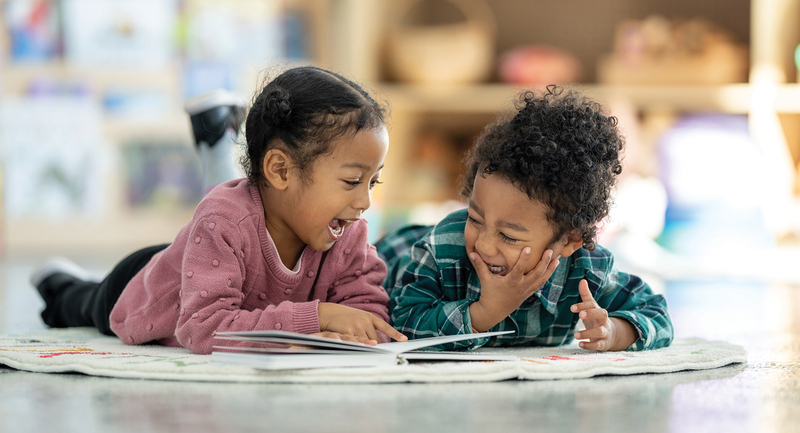Our editorial team decided on the theme for this issue late last winter. After the tumultuous 2016 election cycle, civic education—both in terms of building knowledge of democratic institutions and facilitating constructive discourse—struck us as a suddenly pressing topic.
We weren't the only ones thinking this way, of course. After long being treated as a kind of afterthought or luxury in the curriculum, civic education is having a definite moment—one in which, according to numerous commentators, the stakes are high for both schools and the country.
In a pair of surveys conducted last year, for example, the Southern Poverty Law Center's Teaching Tolerance project found that a large majority of teachers had seen an increase in "uncivil political discourse" and behavior in their schools, including harassment of minority students. Given the incendiary political climate, half the teachers surveyed said they were hesitant even to discuss the election in class. (Some had been instructed by their principals not to.) Teaching Tolerance, a program dedicated to preparing students for participation in a diverse democracy, characterized this seeming all-around breakdown of schools' civic mission as "nothing short of a crisis."
Just days after the election, meanwhile, Richard D. Kahlenberg and Clifford Janey published a much-cited article for The Atlantic making the case that the current political environment was a direct result, at least in part, of the education system's decades-long neglect of civic education. They argued that the 2016 election should be seen as a "Sputnik moment for civics education," spurring "renewed emphasis on the need for schools to instill in children an appreciation of civic values and not just a skill set for private employment." This would require a greater—and more "honest"—attention to history, literature, and civics in the curriculum, as well as far-reaching changes to the way school are run and organized. (Rampant school resegregation, they noted, doesn't exactly set a strong example for students of equal political rights.)
In some respects, Kahlenberg and Janey's piece echoed an important essay published last spring by Harvard political philosopher Danielle Allen. In it, Allen argued that, because of the "vocational paradigm" that's been dominant in U.S. education since the 1980s, school systems have given short shrift to students' right to a well-rounded civic education. This has led to an overall lack of political awareness and engagement—and a downplaying of the ideal of democratic equality. As an alternative approach, Allen called for a greater focus in schools on students' "participatory readiness" and their potential for "civic agency." For her, this means a renewed emphasis on the liberal arts and humanities—and in particular on instruction focused on "verbal empowerment and social-analysis" skills. Such training, she wrote, could better prepare students for the vital "activity of co-creating a way of life, of world-building."
This issue of Educational Leadership, we hope, picks up where those conversations leave off, in the sense that it provides practical, in-depth discussions of how educators can deepen civics learning at a time of political tumult and questioning. Among other topics, the articles explore ways to understand school's contemporary civic mission (Westheimer); enhance students' knowledge of politics and history (Andrew Tripodo and Robert Pondiscio, Karen Engels); build their discussion and media-analysis skills (Renee Hobbs, Kristina J. Doubet and Jessica A. Hockett); address controversial issues (Jacqueline Darvin, Jacob Fay and Meira Levinson); and cultivate civic dispositions and engagement (throughout).
Today, these issues are far from academic. As Joel Westheimer , "democracy is not self-winding." Schools, he continues in an echo of Danielle Allen, have a responsibility to "ask students to continuously reimagine the kind of society they'd like to live in—and give students the tools they need to make such a vision reality."
One thing bodes well for educators in this pursuit: Interest in civic education, including among students, hasn't been this high in a long time. If not now, in other words, when?







